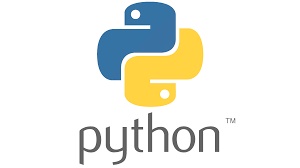In this modern digital era, robust web app security is crucial. As cyber threats advance, keeping web applications safe and secure has become an essential priority for developers and businesses. In this landscape, Python emerges powerful and effective to fortify web app security. Python is known for simplicity, versatility, and libraries packed with tools to address security concerns comprehensively. This post will explore leveraging Python to significantly upgrade web application security, ensuring your digital assets remain resilient and protected against cyber threats.
Python's Clear Readable Code: Security Advantage
Python's standout feature is syntax easy to understand, mirroring natural language, making it exceptionally accessible for coders. This clarity not only speeds up development but plays a vital role enhancing web app security. When code is uncomplicated and concise, developers spot potential flaws and rectify them swiftly, minimizing chances of errors exploited by attackers. This readability also facilitates smoother team collaboration, allowing review of each other's work effectively, ensuring security integration throughout development. Additionally, Python's emphasis on readable code encourages writing clean, maintainable code, aligning with secure coding habits. With simplicity, Python aids developers creating more secure web apps, contributing to overall digital safety.
Python's Built-in Library: A Pillar of Web App Security
Python's expansive library offers a robust foundation for developers seeking enhanced web app protection. It houses a wide array of tools tailored to meet diverse security needs. Modules like `simplify implementation of hashing algorithms, crucial for secure data storage and verification. The `ssl` module facilitates encrypted communication over secure protocols, safeguarding transmitted information. Python's innate capabilities enable effortless integration of robust security features into applications without external dependencies. This native functionality streamlines development while fortifying web apps against cyber threats.
Python Web Frameworks: Secure Coding Made Simple
Python frameworks spearhead secure web development, arming developers with built-in defenses against common vulnerabilities. Frameworks like Django and Flask prioritize security by offering automatic protection against SQL injection, cross-site scripting (XSS), and cross-site request forgery (CSRF). They enforce secure coding practices, minimizing manual security implementation efforts. By leveraging these frameworks, developers can focus on functionality while adhering to security best practices. The seamless integration of security features within frameworks streamlines application development, enabling creation of efficient and inherently secure web apps. This approach allows developers to confidently tackle modern security challenges while harnessing Python's robust framework capabilities.
Good To Read :- Python For Cybersecurity: How It Will Help You?
User-Created Security Tools and Code Libraries
Python's lively, active community plays a big role in web security. They make lots of open-source tools and code libraries. Bandit is one top tool. It looks at Python code to find security issues. PyCrypto is another major one. It's a whole toolkit for encrypting data safely. SQLMap helps find and exploit SQL injection bugs. These are very common web app threats. The tools are all user-created. They give developers critical resources to make apps secure. They also keep updating as new cyber threats appear. Enthusiasts worldwide keep improving Python's security tools. They make Python an increasingly strong choice for secure web apps. This community spirit strengthens Python security. It makes Python ever more appealing for securing web applications.
Python Tools for Encryption and Secure Data
Python is vital for encryption and secure data handling. It has robust code libraries for these tasks. The `cryptography` library is especially versatile. It provides high-level and low-level ways to encrypt data. This lets developers create secure crypto operations. These range from basic encryption to complex key management. While no longer updated, `PyCrypto` was also foundational. It offered many algorithms and cryptography utilities. `PyCryptodome` now replaces `PyCrypto` with newer modules. Python's crypto tools empower developers. They protect sensitive information well. Data stays secure during transmission or storage. These libraries make Python invaluable for secure web apps. They enable proper encryption and data security. Developers can rely on Python to handle encryption and secure sensitive data.
Must Read :- Top Reasons To Consider Python For Your Healthcare Applications
Security Automation with Python Scripts
Python scripting allows developers to automate vital security protocols. These scripts check for vulnerabilities, scan for outdated library versions, and validate security standards across development. Automating security reduces human error risk, acting as a first defense embedded into CI/CD pipelines. Python scripts enforce code quality checks too, instilling security throughout the development lifecycle. This tireless automation maintains established protocols and mitigates breach risks, providing constant vigilance against potential threats.
Python for Security and Penetration Testing
Python excels at security testing and penetration testing with specialized tools. Frameworks like Scapy enable packet manipulation, network discovery, and vulnerability exploitation via Metasploit. Python's scripting automates testing processes, crafting attack vectors and sequences that simulate realistic scenarios. This comprehensively identifies vulnerabilities and their impacts. Python's flexibility and resources make it essential for web application security and penetration testing.
Achieve your business goals faster! Hire dedicated programmers in India for agile and reliable development.
Wrapping up
Python's unique position in enhancing web application security shines through its features and community support. Its straightforward syntax aids in the development of secure, maintainable code. Python's rich standard library and robust frameworks like Django and Flask streamline and enforce secure coding practices, reducing vulnerabilities. The active Python community relentlessly develops and refines security tools, including Bandit and PyCrypto, keeping stride with emerging threats. This ecosystem simplifies incorporating security measures into web development. Importantly, it fosters a culture of proactive security awareness. Python's utility in automating security protocols, combined with its essential role in security and penetration testing, showcases its comprehensive capabilities in defending against cyber threats. By leveraging Python, developers gain a powerful ally in creating resilient web applications, underscoring Python's indispensable role in modern web development security strategies.


No comments yet